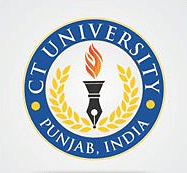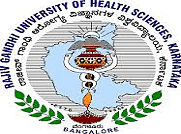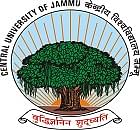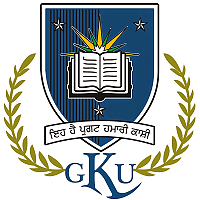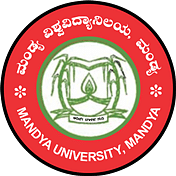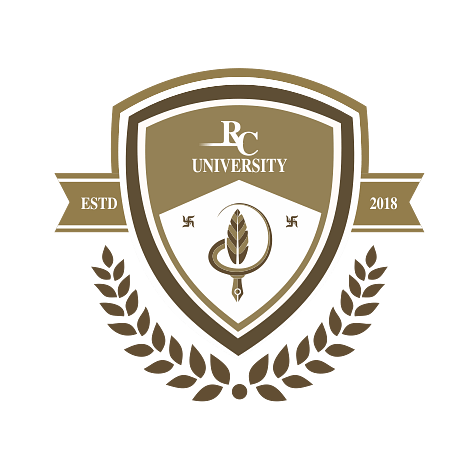Introduction about Ph. D in Medical Physiology
A Ph.D. in Medical Physiology from best college is
an advanced research-focused degree program designed to delve deep into the
intricate workings of the human body at a physiological level. This field combines
elements of biology, chemistry, physics, and medicine to explore how the body
functions in health and disease.
Students pursuing a
Ph.D. in Medical Physiology typically engage in rigorous coursework, laboratory
research, and academic study, aiming to gain a comprehensive understanding of
physiological processes at the molecular, cellular, and systemic levels. Research
areas within medical physiology can be diverse, ranging from cardiovascular and
respiratory physiology to neurophysiology, endocrinology, and beyond.
Throughout their
studies, Ph.D. candidates often work closely with faculty mentors and research
teams, conducting experiments, analyzing data, and contributing to scientific
literature through publications and presentations. The ultimate goal of a Ph.D.
in Medical Physiology is to produce skilled researchers and scholars equipped
to advance our understanding of human physiology, develop new medical
treatments, and improve healthcare outcomes.
What is admission process for Ph. D in Medical
Physiology?
The admission process for Ph.D. in Medical Physiology
can vary slightly between institutions, but here are some general steps
typically involved:
Research Programs
and Institutions: Begin by
researching universities and institutions offering Ph.D. programs in Medical
Physiology. Look for programs that align with your research interests and
career goals.
Meet Prerequisites: Ensure you meet the prerequisites for
admission, which often include a bachelor's or master's degree in a related
field such as biology, physiology, biochemistry, or a related discipline. Some
programs may also require specific undergraduate coursework in biology,
chemistry, physics, and mathematics.
Prepare Application
Materials: Gather all
required application materials, which commonly include:
Completed
application form
Transcripts from
previous educational institutions
Letters of
recommendation (typically from professors or supervisors familiar with your
academic or research work)
Statement of
purpose or personal statement outlining your research interests, career goals,
and why you're interested in pursuing a Ph.D. in Medical Physiology
Curriculum vitae
(CV) or resume
Standardized test
scores (such as GRE, although some programs may waive this requirement)
Writing samples or
publications (if applicable)
Take Standardized
Tests (if required): Some
programs may require standardized test scores, such as the Graduate Record
Examination (GRE). Be sure to check the specific requirements of each program
you're applying to and prepare accordingly.
Submit Applications: Complete and submit your applications by
the specified deadlines. Pay close attention to any additional requirements or
supplementary materials requested by each program.
Interviews (if
applicable): Some programs
may require interviews as part of the admission process. If selected, be
prepared to discuss your research interests, academic background, and career
aspirations.
Wait for Decisions: After submitting your applications, you'll
need to wait for admission decisions from the programs to which you applied.
This process can take several weeks to several months, depending on the
institution.
Acceptance and
Enrollment: If accepted,
you'll receive an acceptance letter outlining any next steps, such as
confirming your intent to enroll, securing funding (if applicable), and
completing any additional requirements for enrollment.
It's essential to
carefully review the specific admission requirements and deadlines for each
program you're interested in to ensure you submit a complete and competitive
application. Additionally, reaching out to faculty members or program
coordinators with any questions can provide valuable insight into the
application process and help you make informed decisions.
What is eligibility for Ph. D in Medical Physiology
?
Eligibility criteria for Ph.D. in Medical Physiology can
vary depending on the institution and program requirements. However, here are
some common eligibility factors:
Educational
Background: Typically,
applicants should have a strong academic background with a bachelor's or
master's degree in a relevant field such as biology, physiology, biochemistry,
biomedical sciences, or a related discipline. Some programs may accept students
with degrees in other fields if they have completed relevant coursework or
demonstrate proficiency in physiological sciences.
Prerequisite
Coursework: Applicants are
often required to have completed specific undergraduate coursework in biology,
chemistry, physics, mathematics, and other related disciplines. The exact
coursework requirements may vary between programs, so it's essential to review
the specific prerequisites of each program you're interested in.
Research Experience: While not always mandatory, having
research experience, either through coursework, internships, or employment, can
strengthen your application. Research experience demonstrates your ability to
conduct independent research, analyze data, and contribute to scientific
knowledge, which are essential skills for Ph.D. studies.
Letters of
Recommendation: Most
programs require letters of recommendation from academic or professional
references who can speak to your qualifications, research abilities, and
potential for success in a Ph.D. program. These letters typically come from
professors, research supervisors, or employers who are familiar with your work.
Standardized Test
Scores (if required): Some
programs may require standardized test scores, such as the Graduate Record
Examination (GRE), although this requirement is becoming less common. Be sure
to check the specific requirements of each program to see if standardized tests
are necessary for admission.
Statement of
Purpose: Applicants are
usually required to submit a statement of purpose or personal statement
outlining their research interests, academic background, career goals, and
reasons for pursuing a Ph.D. in Medical Physiology. This statement provides an
opportunity to showcase your passion for the field and how you align with the
program's objectives.
English Language
Proficiency: International
applicants whose native language is not English may need to demonstrate
proficiency in English by providing scores from standardized English language
proficiency tests such as the TOEFL or IELTS.
It's essential to carefully
review the specific eligibility requirements of each program you're interested
in to ensure you meet all criteria before applying. Additionally, reaching out
to program coordinators or admissions offices can provide clarification on any
questions you may have regarding eligibility.
What is syllabus for Ph. D in Medical Physiology?
The syllabus for Ph.D. in Medical Physiology can vary significantly
depending on the specific program, research interests of faculty members, and
the focus areas of the department. However, here is a general overview of
potential topics that may be covered in the coursework and research components of
a Ph.D. program in Medical Physiology:
Advanced Physiology
Courses:
Cellular
Physiology: Understanding the physiological processes occurring within cells,
including membrane transport, signal transduction, and cellular metabolism.
Systems Physiology:
Examining the integrated function of organ systems such as cardiovascular,
respiratory, renal, gastrointestinal, and endocrine systems.
Neurophysiology:
Studying the structure and function of the nervous system, including topics
like neuronal signaling, synaptic transmission, and sensory processing.
Molecular
Physiology: Exploring physiological processes at the molecular level, including
gene expression, protein structure-function relationships, and molecular
signaling pathways.
Research
Methodologies:
Experimental Design
and Data Analysis: Learning about experimental design principles, statistical
analysis methods, and data interpretation techniques relevant to physiological
research.
Laboratory
Techniques: Hands-on training in laboratory techniques commonly used in
physiological research, such as molecular biology techniques,
electrophysiology, microscopy, and biochemical assays.
Literature Review
and Critical Analysis: Developing skills in critically evaluating scientific
literature, identifying research gaps, and formulating research hypotheses.
Specialized
Elective Courses:
Advanced Topics in
Physiology: Specialized courses focusing on specific areas of interest within
medical physiology, such as cardiovascular physiology, respiratory physiology,
neurophysiology, or endocrinology.
Advanced Research
Seminars: Participating in seminars or journal clubs where students present and
discuss current research findings in medical physiology and related fields.
Professional
Development:
Grant Writing and
Research Proposal Development: Learning how to write research proposals and
grant applications to secure funding for research projects.
Teaching and
Communication Skills: Developing skills in scientific communication, including
writing manuscripts, presenting research findings at conferences, and teaching
undergraduate or graduate-level courses.
Independent
Research:
Dissertation
Research: Conducting original research under the guidance of a faculty advisor,
culminating in a doctoral dissertation that contributes new knowledge to the
field of medical physiology.
Dissertation
Defense: Presenting and defending the doctoral dissertation before a committee
of faculty members and peers.
It's important to
note that the specific courses and research experiences offered in a Ph.D.
program in Medical Physiology may vary between institutions. Students are often
encouraged to work closely with their academic advisors to tailor their
coursework and research experiences to their individual interests and career
goals.





